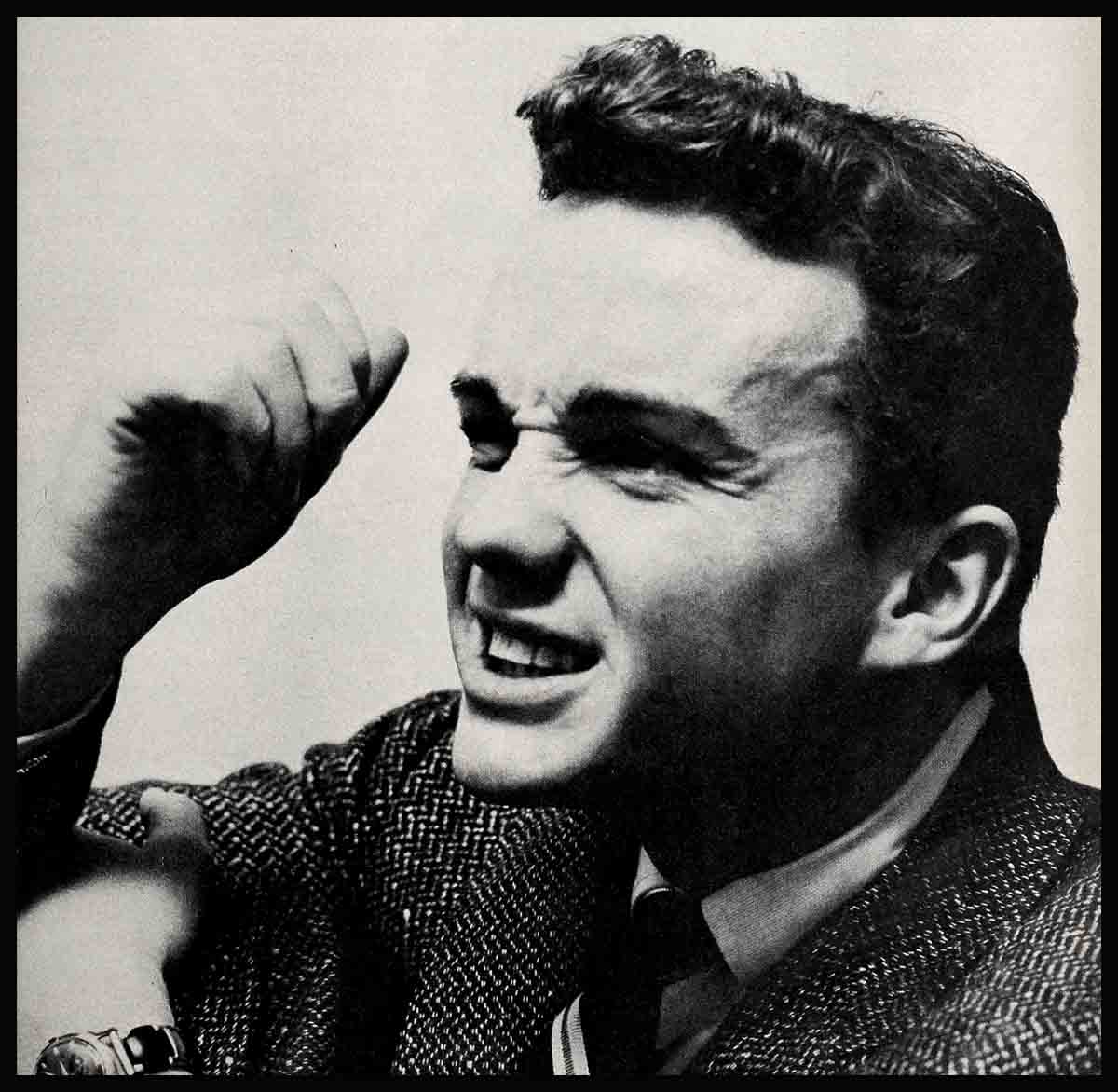
Ben Cooper—Pardon Our Pride
It was a Sunday evening during the winter of 1936. We had finished the dinner dishes and started into the living ra room to scoot our two youngsters off to bed. What we saw astonished us. Our five-year-old daughter, Bunny, was an enraptured audience of one while her three-year-old brother, Ben, was pantomiming the action of Jack Benny and his violin, playing “Love in Bloom” on the radio.
This could have been just an amusing story to tell the neighbors. It was, instead, a forecast of things to come.
We are convinced our son was born to be an actor. We couldn’t have fought it even if we had wanted to. All the signs were there from the very beginning.
We remember when Ben was seven and hospitalized for appendicitis. A few hours after he had come from surgery, we were allowed to see him. We found him cheerfully lying in bed with a thin wooden stick in his mouth. When we asked what is was for, Ben removed the stick just long enough to explain: “Shhh, I’m taking my temperature.” And for the rest of his stay he alternately play-acted doctor, nurse and “suffering” patient.
Ben was always happiest dressing up, being “somebody.” There were times when he’d have four or five different outfits on in one day. The neighbors never knew what to expect. Nor did we. If the proper costume wasn’t on hand, young Mr. Cooper wouldn’t be at all discouraged, he’d merely improvise. For instance, one rainy night when he was five, he had finished listening to his favorite Western show and decided he was in a “Sitting Bull” mood. He hadn’t been in this mood for some time, and consequently he had outgrown his Indian suit. But that didn’t stop him. He took his sister’s beads, a feather from Mom’s hat, two washcloths, an Army belt and a hammer for a tomahawk. Bunny, not to be outdone, did some improvising of her own. We expected a pioneer woman or at least a squaw to emerge from the attic. But Bunny had other ideas. Picture if you can, an exotic gypsy girl crystal-gazing into the future of a young Sioux and you’ll have a pretty good idea of that particular “playtime in the Cooper household.”
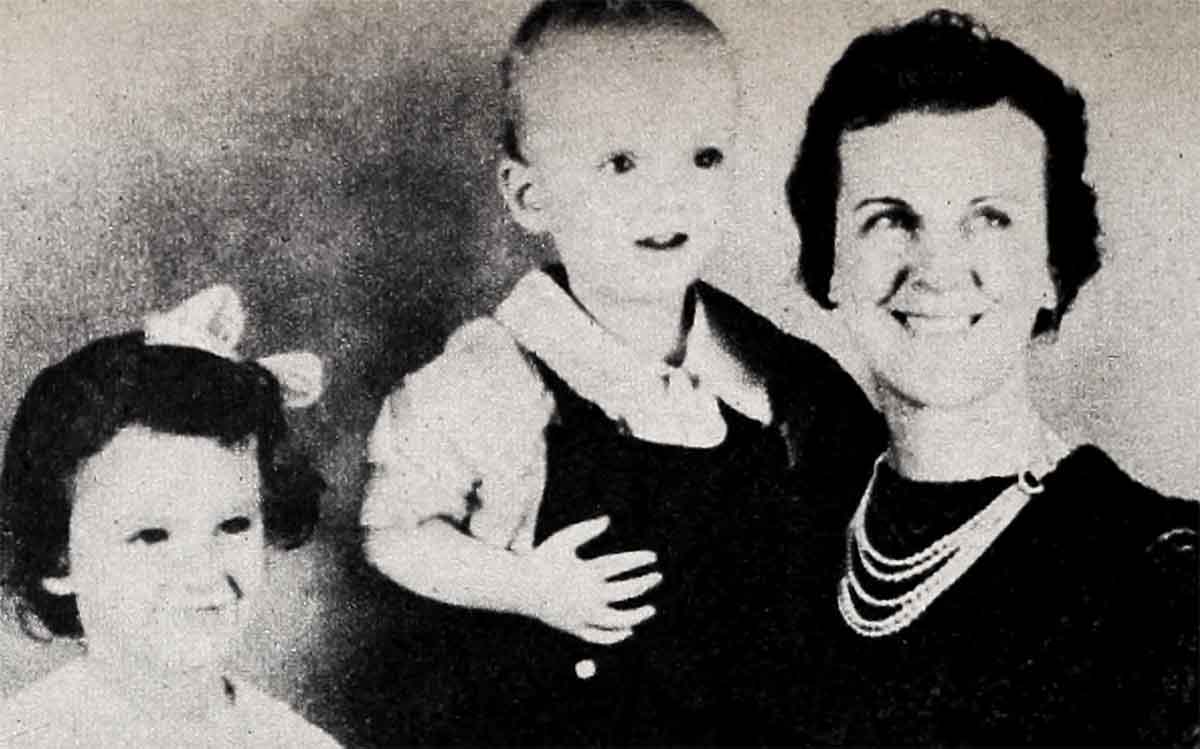
It wasn’t too long after this incident that Ben began acting for real. A friend of ours called to tell us that the producers of “Life with Father” were looking for a replacement for the youngest “son.” She suggested we bring Ben down. Later in the evening, we discussed the advisability of this and wondered whether to tell Ben. We decided we should. Ben thought about it for a while and said, “Let’s go for the fun of seeing backstage.” Since we had never been backstage in a theatre either, and didn’t think we’d ever get another chance at it, we went.
When we arrived with Ben in tow, there were about forty little boys there with what could be considered typical “stage mothers.” A few of the mothers began to question us quite suspiciously: “What has your son done?” “What professional school does he attend?” “Where did he get his theatrical training?” Since Ben had never appeared on any kind of a stage before, we began to feel like interlopers, and didn’t dream he stood a chance.
However, he was one of five given a script and told to come back for the final reading.
The night before his audition, we went into his bedroom for a heart-to-heart talk. “Son,” we said, “we don’t want to discourage you, but those boys have all had professional experience. Your chances are not good and we are telling you this now so you won’t be disappointed tomorrow.” We’ll never forget his answer: “Well, if I lose,” he said, “I’ll go over and shake hands with the winner, just like Dad does when he’s beaten at tennis.”
What we didn’t know was that Ben had memorized the entire script. He went through his audition like a seasoned veteran: When he finished, he was told the part was his. He was overjoyed, but his first words were: “Now I can buy Mom that new dress.” When he was six, Ben had vowed that with the very first money he made, he’d buy Mom a dress. And, after he received his first paycheck, we had to take him to a shop and let him select one. His choice was a navy-blue two-piece affair, picked because it looked like a military uniform.
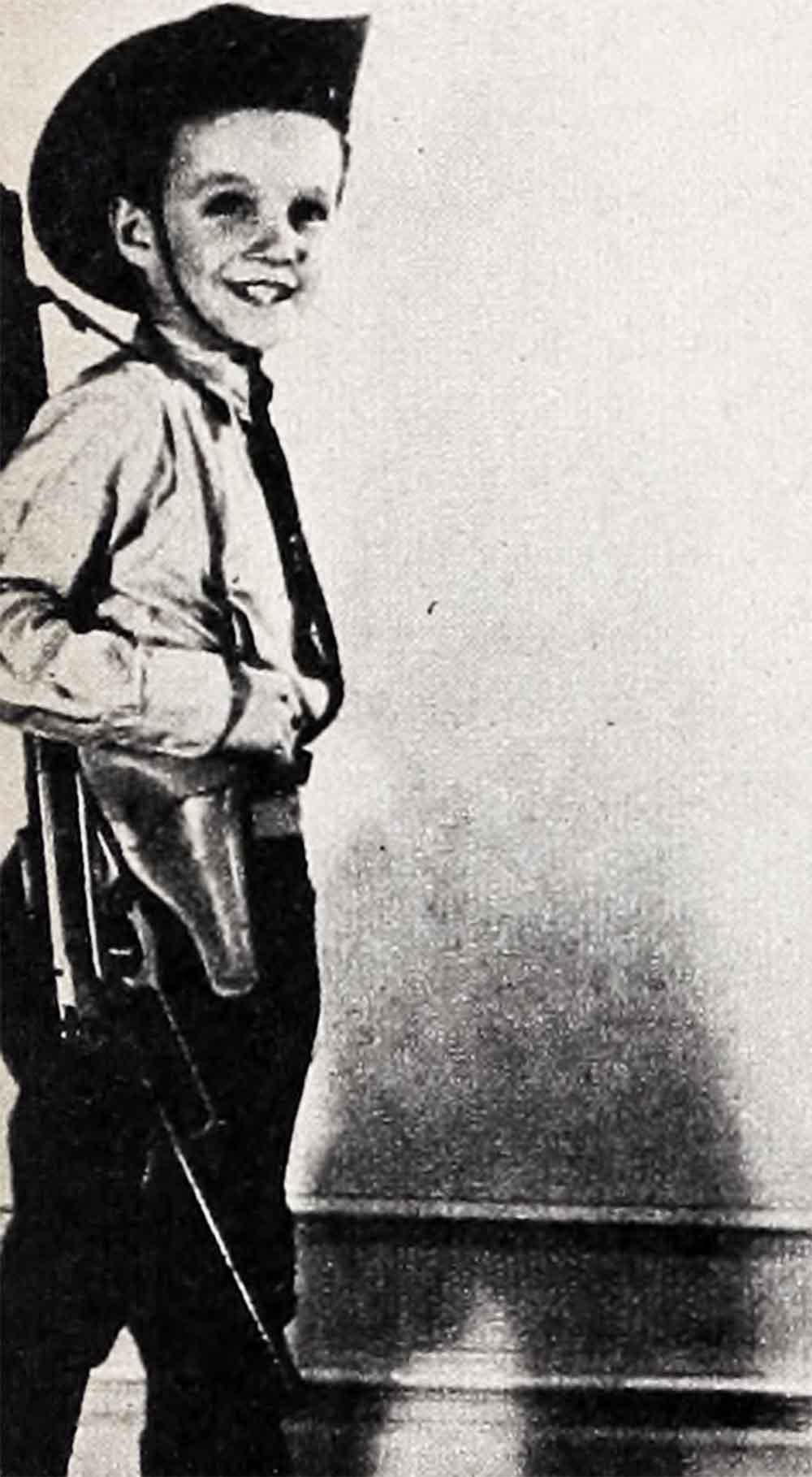
We will never forget that first week’s salary! First of all, our young businessman was quite disgruntled because he was being paid by check. To him, a check was not money. After we had convinced him it could be exchanged for “money” he agreed to accept it. However, after taking one look at the contents within the pay envelope, he very eloquently cried out. “I’ve been gypped!” “What do you mean?” we asked. He showed the check to us and exclaimed: “They said I was going to get $50, but all I received was $49.50.” We explained that the missing fifty cents went to the government for social security and old-age benefits and that someday it would be returned.
“How old do you have to be?” he asked.
“Sixty-five.” He shook his head, disgruntled. “I’ve still been gypped!” For an eight-year-old it seemed a logical conclusion.
What really stands out, however, about that first payday was Ben’s gesture after his check had been turned into “real money.” Solemnly, he walked over and handed one dollar of it to Dad. When we asked what that was for, he replied, “It’s Dad’s salary for helping me learn my lines.”
It was difficult for us to keep a straight face, but just as solemnly we accepted the money. We still have that dollar bill—framed over the desk in the den.
There are so many wonderful stories we could tell about our son while he was playing in “Life with Father,” it’s difficult to know where to start—or when to stop. We will try to limit ourselves to about two or three incidents which made us just about the proudest parents in the world.
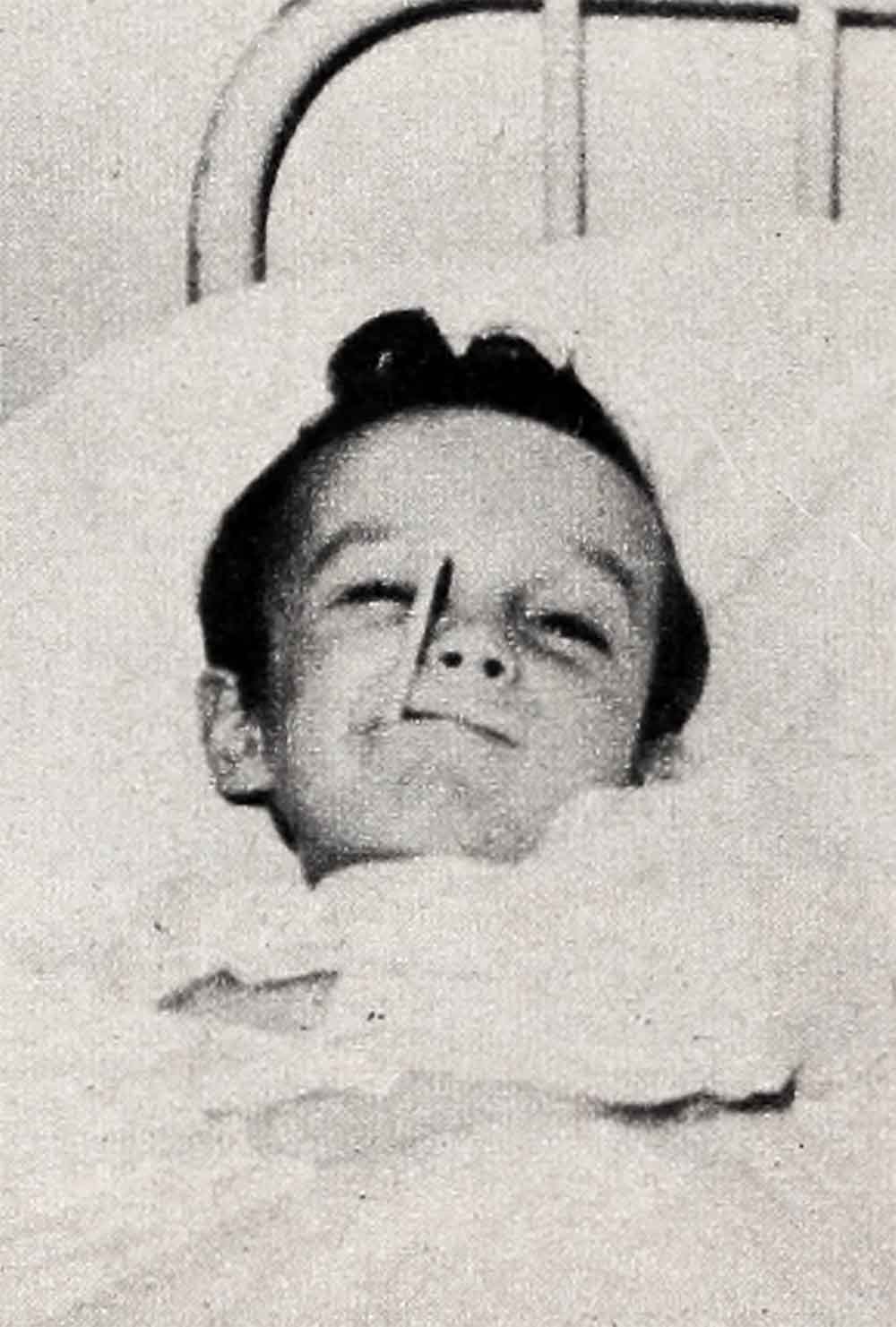
The first occurred after Ben had been with the show less than a week, during the scene in which Father Day(Howard Lindsay) had to read the catechism to his “sons.” Ben went to the spot where the book usually was kept—but it wasn’t there. “Father,” Ben ad-libbed, “you must have left it in the other room.” Father sent one of the other boys to fetch it and, to cover the stage wait, said, “What would you like me to read to you while we are waiting?” Ben hesitated for a moment, then piped up: “Gulliver’s Travels.” Mr. Lindsay ad-libbed about the Swift novel until the missing catechism was located and brought on stage.
After the performance he and his wife, Dorothy Stickney, who played Mother Day, told Ben: “You’re not a ‘name’ now, but you are what actors work for years to become—you’re a ‘trouper!’ ”
Mr. Lindsay told us later that it was unforgivable to throw the responsibility of ad-libbing to a little boy and, once he realized it, was worried sick that Ben would come up with some unearthly title. Ben, on the other hand, informed us that the only reason he had hesitated at all was because he wasn’t sure whether the book was written before the turn-of-the-century period of “Life with Father” or right afterwards. Can you believe it!
Certainly such a trouper deserved a reward, and for his fast thinking Ben was that night granted the one “privilege” he had been seeking for quite some time. You see, one of the few things taboo in our home were comic books. Although many of them are harmless, we didn’t want to risk our children becoming influenced by those of the blood-and-thunder variety. Although we bought them other books, Ben still hungered for comics and feverishly would read those left by other children backstage.
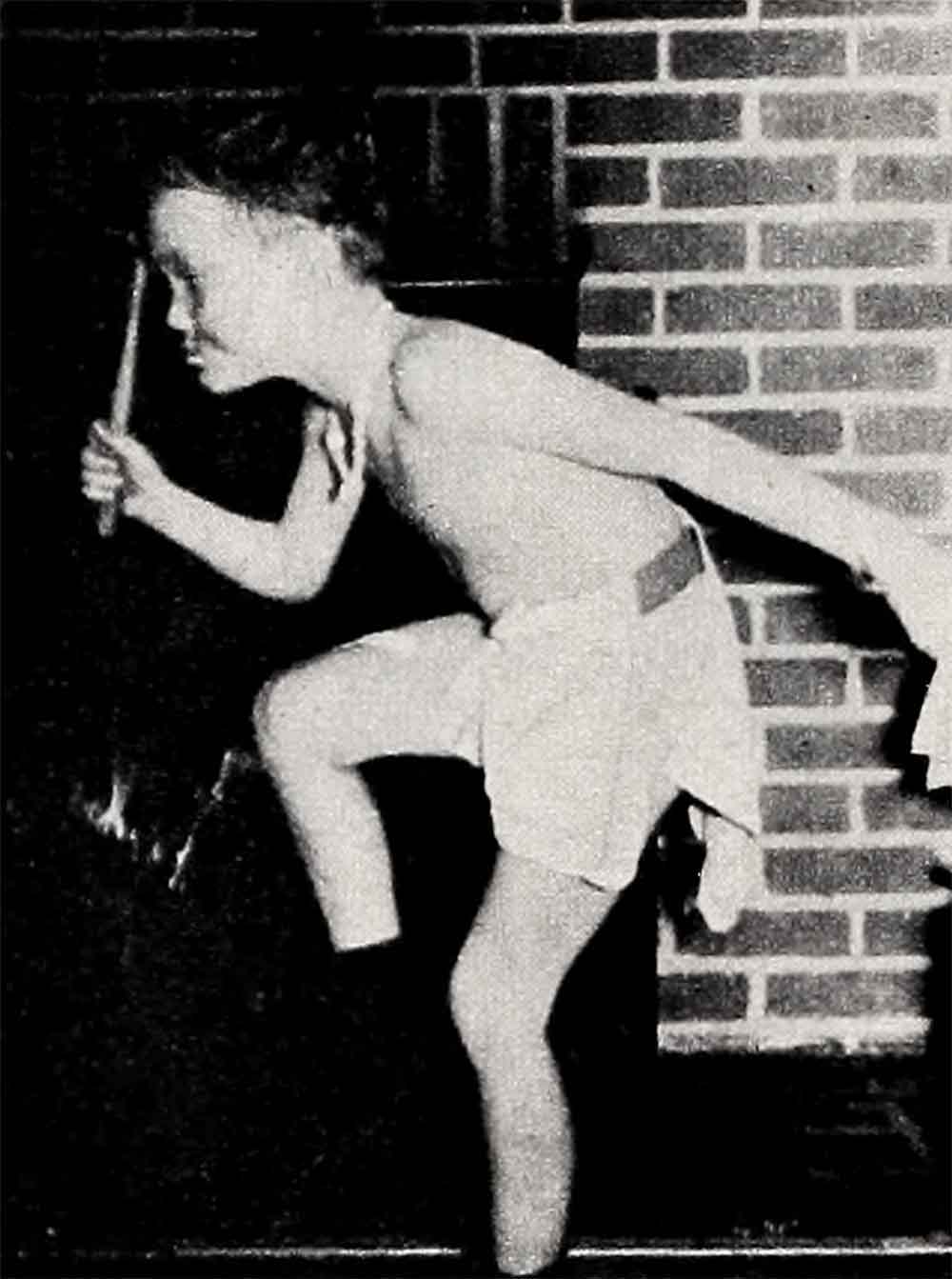
That night, on the way home, Ben capitalized on Mr. Lindsay’s words. “You see,” he said, “I didn’t name a comic book did I?” This convinced us it would be all right to let our boy do all his own choosing of reading matter. And he never let us down.
Another incident we are particularly proud of occurred the following summer. Mr. Lindsay left on vacation and another actor was brought in to replace him. The first night on, he went blank! Ben, in a very low voice, gave him all his lines and pulled him through the show. It was then we discovered that our boy had memorized everyone’s part, letter-perfect.
Thinking of this recalls the time that Ben was hospitalized for a week with a touch of pleurisy. He had a high fever, but as he lay in bed he went through all the scenes of the show and it wasn’t until the curtain dropped at 11:10 that he turned over and fell asleep.
Sometimes when we talk about our son, we worry whether we sound “stuffy” or make him seem like a combination of Little Lord Fauntleroy and The Rover Boys. We don’t mean to, but the truth of the matter is that we never had any serious problems with him. He was always healthy, happy, well-adjusted and full of fun. He had an inborn social sense and instinctively did the right thing. We didn’t use, nor did we need to use, any kind of child psychology on him. One of our basic rules was to let both Ben and Bunny have as much freedom of choice as possible within sane limits.
Occasionally, we’d try to temper Ben’s high spirits. Such as the times he’d sing at the top of his voice in the subway, or walk over to a stranger’s musical instrument and start playing away without asking permission first. “Ben,” we’d reprimand, “would a big boy do something like that?” And he’d answer: “But I’m not a big boy, I’m a little boy!” What can you say to that?
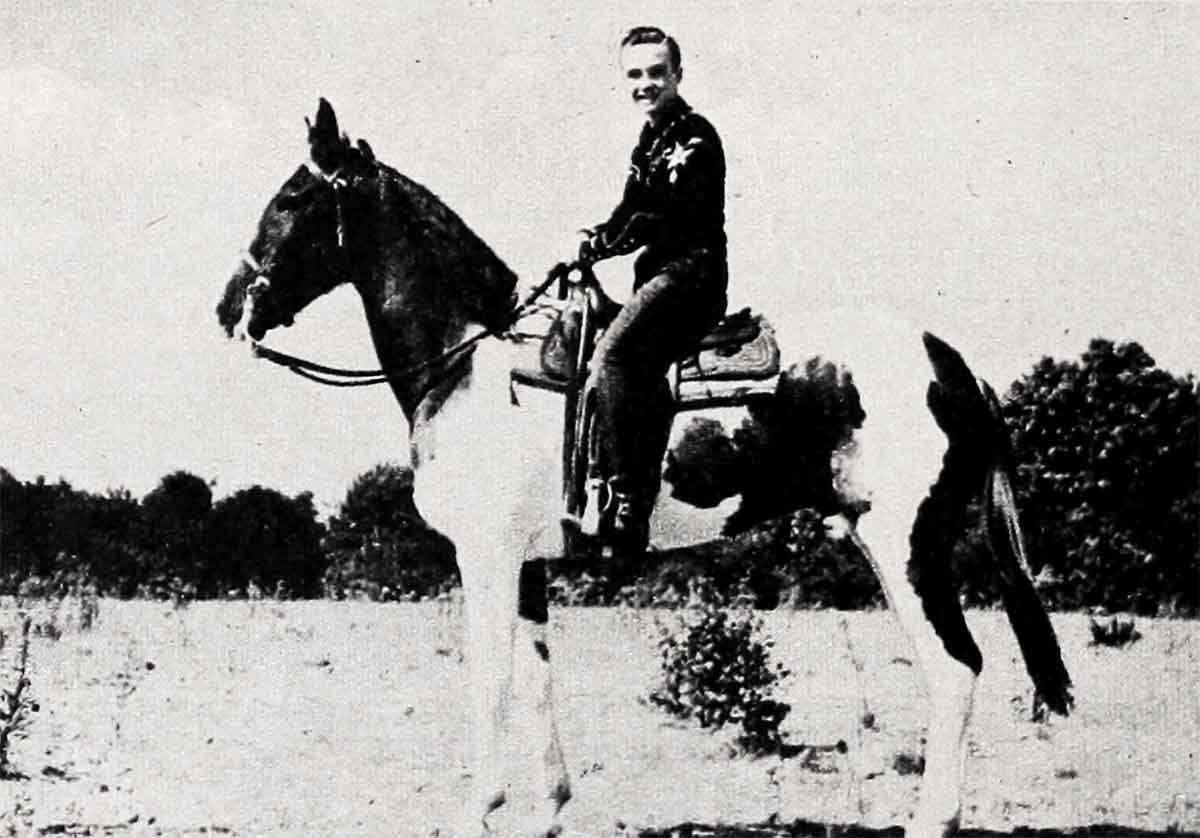
Ben was always so happy because he was doing what he wanted to do most. We recall one night when, in dead earnestness, he said: “Dad, I feel sorry for most boys.” Naturally we asked why, and we think his answer gives the key to his entire personality: “Because I know what I’m going to do. Most of them don’t. That’s something I’ll never have to worry about.”
Ben may have been a “good boy,” but he also had a sense of humor, a sense of mischief—and always the perfect squelch. His favorite concerned his hair, which had been colored a violent pink-red for the show. Inevitably, on the street or in the subway, some well-meaning but overcurious matron would come over and gush, “My, my, what pretty hair for such a little man.” Ben would look up and ask, “Would you like to have hair like mine?” The woman would usually fib and say that she would. “Well then,” our son would innocently answer, “dye it. I do.” And that ended that line of questioning.
Despite the fact that they were as close as a brother and sister could be, even Bunny wasn’t safe from Ben’s pranks. We remember one incident that happened during the early World War II years. One evening, Bunny and a girlfriend went to a movie and Ben was left to his own devices. His device that night consisted of commandeering a can of luminous paint and sketching a king-size skeleton on the black-out curtains in Bunny’s room. He left the light on so the girls wouldn’t become aware of it until they retired for the night. The only hitch was that Ben dropped off to sleep before the girls did. Still, he didn’t miss out on the gag.
The girls hadn’t their lights out for more than three minutes when Bunny’s friend looked toward the window and saw the eerie form outlined upon the drapes. You never did hear such screaming. It woke the entire household including our little mischief-maker. Bunny threatened never to talk to her brother again, but knowing those two, we were sure the feud wouldn’t last more than fifteen minutes. And it didn’t.
Ben wasn’t above making deals with his teachers either—even on his first day at St. Luke’s Parochial School. The class was told that if anyone talked during lessons he would have to bring in a candy bar as a penalty. At the end of the day Ben was in debt for three bars, topped only by another little chatterer who owed five. Ben promised to bring his candy in, but he wanted to bet that the other boy would forget. The teacher agreed and terms were set. If Ben won, no homework for a week. If he lost he’d have to bake a cake for the teacher.
Early the next morning, the other fellow showed up with his five bars clutched in his little hand. Later that afternoon, Chef Cooper had taken over the kitchen, flour, chocolate, sifters and all. Of course, we supervised a little here and there—no sense of risking a decrease in the school’s staff—but the actual baking was done by Ben. To this day, he still can come up with one of the best chocolate cakes we’ve ever tasted.
While on the subject of Ben’s education, the one thing we insisted upon was a regular school for our son. We preferred that he didn’t attend a professional school, and we remained in Beechurst, Long Island, instead of moving closer to the theatre district, to assure our son as normal a life as possible, when he wasn’t acting. And, in spite of all his work, we are convinced he did lead a normal life.
One July 4th, Ben did three radio shows, but he still managed to get home in time to compete in—and win—the boy’s annual swimming race. Sometimes his friends would sympathize about his having to work on holidays. But Ben would merely look at them, shrug his shoulders and comment, “Well, that’s show business.”
The time came, however, when the rugged schedule of school play, a Broadway show and increasing amounts of radio work, seemed to us to be too much for any youngster. If it had been left up to Ben, he’d have continued participating in all four phases of his life. But we decided he’d have to withdraw either from the play or radio. The choice, of course, was his own.
The night Ben gave notice to the producers of “Life with Father” was the most heart-breaking of his young life, but once he had made his decision, he didn’t back-track.
A year later, he knew it was the right one. By then he was appearing on many of the leading radio shows, with the biggest stars of stage and screen: Helen Hayes, Claudette Colbert, Joseph Cotten, Elizabeth Taylor, and so on.
We refused to let Ben take his own radio calls. If he’d had his way, he’d have booked himself solid twenty-four hours a day, seven days a week. As it was, he had as many as fifteen shows “going” in one week—he would finish at one network, grab a cab and dash to another. We remember the time he received a rush call to read for “The Eternal Light.” It meant getting up at 7 a.m. on his Sunday off, and we weren’t too happy about this. However, they wanted him for the role, and Ben told us: “Golly, I have to accept it. I’m going to narrate it, too.” We had no choice in the matter.
As we’ve explained before, Ben’s work had no serious effect on his social life. All Beechurst still remembers his VJ. Day fiesta. Ben insisted we have a celebration at our home—and what a celebration it turned out to be! Since it was an impromptu affair, he devised a way to be sure everyone in town was invited. He borrowed a portable power megaphone from a neighbor, placed it in our car, and as we cruised along the streets he announced over the loud-speaker: “Party at the Coopers. Come one, come all.” All came. We had children and grownups parading in and out of the house throughout the night. Ben strummed his guitar and sang until he was hoarse. It wasn’t until eight the next morning that the exhausted Cooper clan made it to bed.
It was shortly after this that Ben acquired what for years was his most prized possession—his beautiful chocolate and white horse, Gypsy. Gypsy originally belonged to a pal. Ben was crazy about the horse from the moment he laid eyes on it and was often permitted to ride him. Just before his friend returned to Switzerland, Ben put in his bid and the boy’s father didn’t have the heart to reject it, though he could have received much more.
Ben and Gypsy became inseparable. But, in addition to loving the horse, Ben considered him a career investment. “After all,” he said, “I have to be an expert rider if I expect to become a big Western star in movies.”
Ben’s ability with horses amazed everyone. We recall the time he went to Tucson, Arizona, with Bob Feller on a “combat juvenile delinquency junket.” He was put up at a ranch and looked forward to early-morning gallops. The first day, the rancher took one look at the youth and presented him with an old plug. Ben didn’t protest, but after he had mounted and gone about five paces, he was called back to get a better horse. By the end of the week, he and Bunny were riding frisky palomino stallions which adult guests weren’t even permitted to go near!
When it came time to say goodbye, the old ranch-hand came over to Ben and remarked: “Must tell ya fella, you’re the best dern horseman we’ve ever had on the place!”
Gypsy was Ben’s sole extravagance for himself. But to us, he was over-generous. We had a problem holding him down. There was, for instance, that first Saturday in December when he was thirteen. Ben had been acting mysterious all morning. Finally he approached us with, “Dad, I want you to do something. I want you to take me somewhere.” When we asked where he seemed reluctant to answer. We said we’d gladly drive him if he told us the destination, but we wouldn’t agree to any “mystery” trips. “Well,” he blurted out, “I want you to go with me to the Cadillac dealers. I ordered one for your Christmas present.” We were shocked and I’m afraid a little abrupt when we told him we wouldn’t let him do that with his money. We tried to soften his disappointment by explaining that people might think we “forced” him into it. But he wouldn’t be dissuaded that easily. “I’ll tell them. I’ll tell them all,” he protested. We argued most of the afternoon before we convinced him to abandon his impractical, albeit magnificent, gesture.
There was only one suggestion we ever made which Ben vehemently opposed. It occurred during his final term at high school when we asked if he wouldn’t like to suspend his career, enter a good college and resume acting after graduation, if he still wanted to. Ben grew as white as death and. said quietly, “Never have I refused to consider anything you’ve suggested, but this I must. . . .” We stopped him right there and said, “That’s all.” We never brought up the subject again.
Without sacrificing his career—which by that time included numerous TV appearances—Ben still managed to study for two years at Columbia University. His favorite was an acting course conducted by the late Gertrude Lawrence. Ben was the youngest member of the group. Oddly enough, one of his projects was a scene from “The Rose Tattoo,” which had just opened on Broadway. Therefore, by the time Danny Mann wanted to test him for the film, Ben was well schooled on both the play and the role of Sailor Jack. In fact, when he wrote us he was being considered, we never doubted his chances of getting it. We had had our own personal preview of what he could do!
Naturally we are happy about our son’s success in pictures. We knew it had been a rough blow for him when he was first tested for a role in “Retreat, Hell!” and lost out. But when he returned home he wasn’t discouraged. “It will all turn out for the best,” he said. “Wait and see.”
Well, it all did turn out for the best. When the producers of “Thunderbirds” were looking at film on another actor, they also happened to see Ben’s test for “Retreat, Hell!” and before we knew it our son was packed and en-route back to California. This time for good.
We’ve been West to visit Ben many times, and we never cease to get a kick out of his struggles with light housekeeping. It’s been easier since his sister Bunny has been living with him, but we still get a laugh remembering our first visit, when he bemoaned all his domestic difficulties and asked us reverently how in the world we ever managed to do it all. “Do you know,” he said, “I even have to buy my own washcloths.”
It’s always a little lonely when we return home. When you are used to hearing singing the first thing when you awake and the last thing before you retire and suddenly hear it no more, you’re bound to feel a little sad.
But there are still many things that keep our son with us: His collection of hats and helmets neatly hanging over his bed just as he left them; tape recordings of his personal appearance tours; his miniature horse collection, his many gifts to us; and, of course, his films playing at the local theatres. One of our most recent proud moments came when we attended the premiere of “The Rose Tattoo,” in New York. After the movie, as we were walking out of the theatre. a woman behind us exclaimed, “Gosh, that boy Ben Cooper was absolutely wonderful! I can’t imagine anyone who’d be better in the part.” We had the urge to turn around and boast to the woman that she was talking about our son. But we didn’t. Instead, we just looked at each other and smiled, our hearts overflowing with pride.
Yes, there are so many things that keep Ben close to us. Most of all there are the memories. The memories of that boy who wasn’t fooling when he said, “I know what I’m going to do. That’s something I’ll never have to worry about.” And neither will we.
THE END
It is a quote. PHOTOPLAY MAGAZINE APRIL 1956


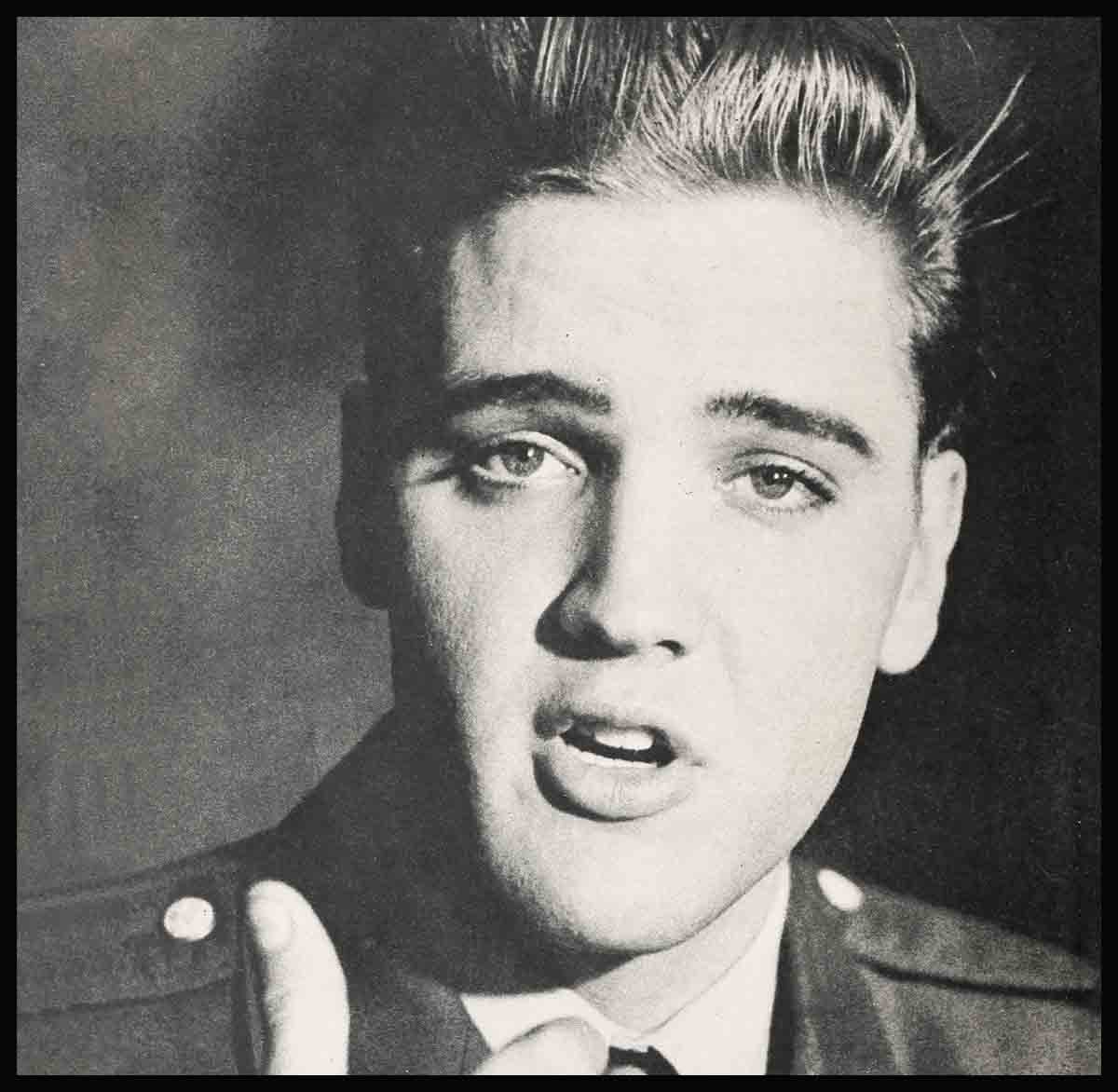

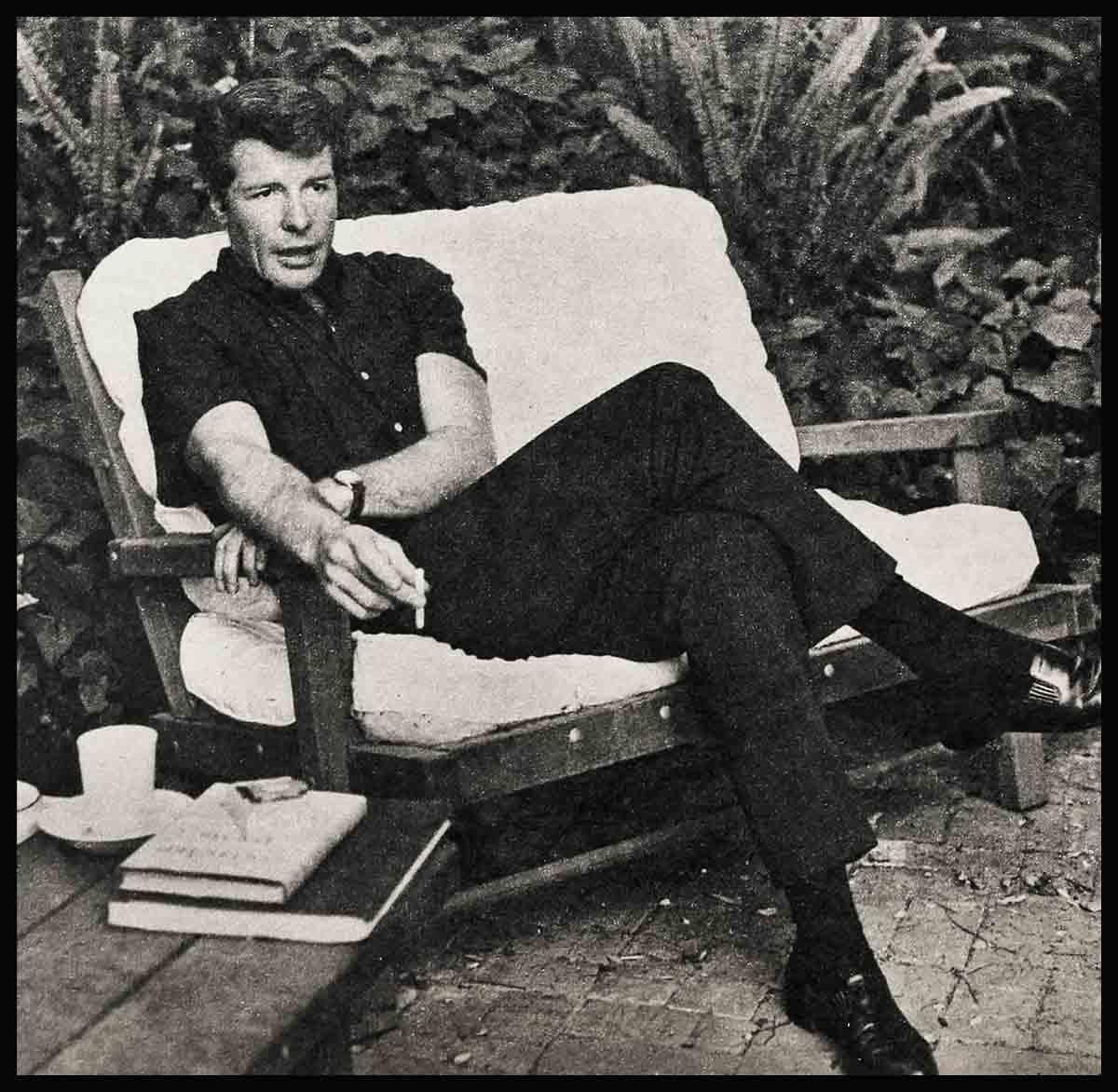
No Comments